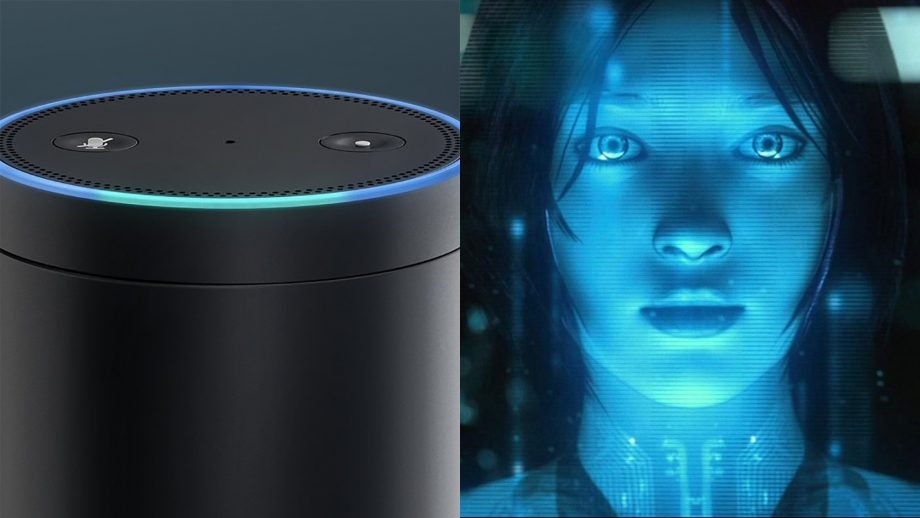Alexa and Cortana can now perform a really awkward job share

It used to be pretty simple: Alexa lived in your Amazon Echo, and Cortana lived – largely undisturbed – in your Windows 10 computer. Now, thanks to a joint initiative that nobody asked for, you can get Alexa and Cortana to share the job of being your dedicated virtual assistant.
First announced as an ambition last year, the idea is that users could have the best of both worlds − Cortana to handle your Microsoft Calendar and Outlook enquiries, and Alexa for pretty much everything else. But if you combine the two, then not only would Alexa be on 700 million PCs worldwide, but Cortana would get a small imprint on the 50 million Echos in the wild. Everyone’s a winner.
Related: Google Home vs Amazon Echo
Everyone, that is, except those that enjoy a smooth user experience. The early test, which is limited to the US, is extraordinarily clunky.
You don’t just say what you want, and let the device decide which virtual assistant is best placed to pick up the request. Oh, no: that would be too easy. Instead, you have to open up the virtual assistant as a skill on the device, and then ask it yourself. That means saying “Alexa, open Cortana”, or “Hey Cortana, open Alexa”, before you can even begin.
Oh, and not everything works yet. Streaming music, setting alarms and “additional features” will come at a later date, apparently.
“In the real world, no one relies on one person for all their needs — fixing a car’s engine requires different skills than offering financial advice or caring for a baby,” wrote Microsoft’s Jennifer Langston in a blog post announcing the collaboration. “So it makes sense that people would rely on two digital assistants to stay on top of their home and work lives.”
Hmmm, that’s quite a logical leap, giving AI the same limitations as human expertise. But even if it weren’t, it’s perhaps telling that of the examples given by Amazon, only one of the Cortana functions listed isn’t already replicated natively on the Echo. All the Alexa functions, by contrast – playing Jeopardy, turning on lights and managing Amazon orders – are unique to it.
Related: Which Amazon Echo speaker should you buy?
Which leaves me feeling that Amazon has got the better end of this deal. There’s a reason that Alexa has got something close to mass adoption, while Cortana is largely ignored: people don’t need to clumsily use their voice when they’re sat with a keyboard and mouse.
But for people sold on the Echo ecosystem, getting remote access from work really does offer something useful for Amazon.
Do you care that Alexa and Cortana now work together? Let us know on Twitter @TrustedReviews.


